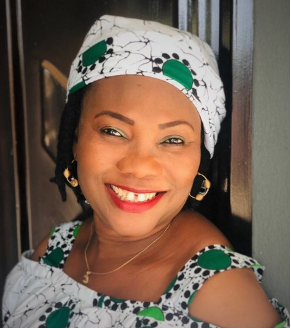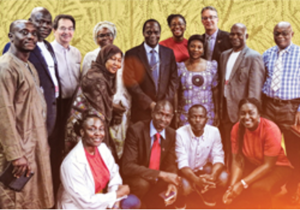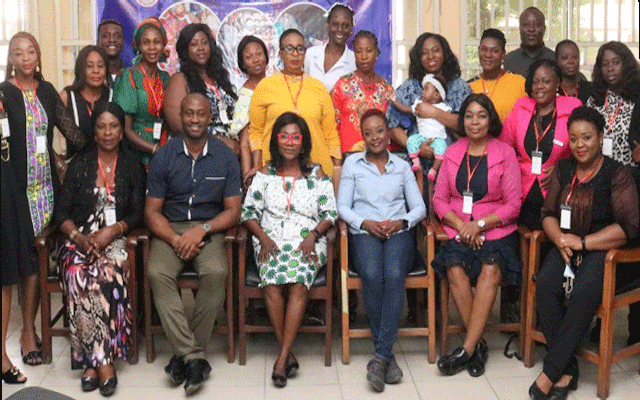
Megan Adediran, Founder and Executive Director of the Hemophilia Foundation of Nigeria (HFN), a WFH national member organization (NMO), has been instrumental in the progress that has been made in Nigeria’s bleeding disorders community over the last 16 years—but she would be the first to admit that she had a lot of help along the way.
Through the twinning partnership between the HFN and the National Hemophilia Foundation (NHF) in the United States, Adediran was able to gain the skills and confidence to better serve her community. “I’ve become a better advocate,” she said. “And we’ve been able to develop a lot of [resources to support] the community.”
The partnerships between patient and youth leaders created through the WFH Hemophilia Organization Twinning Program are just one of the ways we seek to promote collaboration and exchange, and foster solidarity within the global bleeding disorders community. “Our twinning with the NHF in 2012 was our breakthrough, the knowledge we gained from that relationship took our organization from level 1 to 5 on the ladder of advocacy, fundraising and organizational development,“ said Adediran. The WFH was founded because 12 national patient organizations believed that they could do more if they worked together. That philosophy is still going strong to this day.
Irene Chami, former WFH Regional Program Manager, Africa, said that a key component of the success of the HFN was Adediran’s thirst for knowledge and constant desire to learn from her peers. “She was keen to attend all the learning opportunities the WFH could provide, be it workshops, conferences, the World Congress… and then she would say, how can I adapt this to my situation on the ground?” explained Chami. “Twinning with the National Hemophilia Foundation in the United States was also significant, as it gave us tools that made it possible for the HFN to define how we do our work as an NMO. It also helped the organization’s members learn skills like fundraising and advocacy.”
The threads being woven through these collaborations led to real change for both communities. Change that would inspire all those that were involved for years to come. “This was the first twinning that NHF was involved in, and it had a huge impact on many of us,” said Neil Frick, Senior Vice President of Medical Programs and Information at NHF. “We were able to see firsthand how not having treatment available, not having government support and the lack of education for providers was affecting the patients. We experienced the initial impact visiting with a government can have and how those relationships are cultivated with time and persistence.”
NHF and the HFN worked on letters to local, state, and federal governments to educate leaders on hemophilia. “Our twinning with NHF was our breakthrough… The knowledge we gained from that relationship took our organization from level 1 to 5 on the ladder of advocacy, fundraising and organizational development,” said Adediran. They worked to strengthen local chapters across Nigeria—building the infrastructure to ensure the HFN’s sustainable long-term success and building confidence within the bleeding disorders community.
Those early lessons, learned through collaboration within the WFH global network, have had a tremendous impact on the bleeding disorders community in Nigeria. The persistence of the HFN has recently been rewarded with official recognition by the Nigerian Ministry of Health: bleeding disorders are now included in national policy. This policy aims to ensure early detection and proper medical care of people living with a bleeding disorder; the creation of a national structure to disseminate information; and the promotion of comprehensive care to improve the management of inherited bleeding disorders.

For NHF, the experience in Nigeria made it clear that long-term investment is needed to create sustainable, meaningful change. “This all began a path of donating more funds to the WFH, getting involved in leadership, encouraging our chapters to get involved in the twinning program and pursuing a Youth Twinning with India,” explained Frick. “The experience has produced lasting benefits and a belief that we are all part of a global community.”
Adediran’s boldness and persistence has helped the HFN get this far, but no one can lead such profound transformation alone. For nearly 60 years, the WFH has been working to create sustainable change for the global bleeding disorders community. The progress made is not always immediate—but it is transformational. “The continuous improvement in the quality of life for persons with bleeding disorders continues to give me the motivation to do more,” said Adediran.
If you want to ensure that more people with inherited bleeding disorders are diagnosed and have access to care, regardless of their gender or where they live, please consider making a gift today.
Thank you to everybody who supports the work of the WFH, your generosity often makes the difference between life and death for many around the world. Every dollar you contribute allows us to continue our important work of pursuing Treatment for All.
- Megan Adediran, Founder and Executive Director of the Hemophilia Foundation of Nigeria
*Every dollar raised will be matched 2:1 until December 31, 2021, up to a total donation of $20,000.












